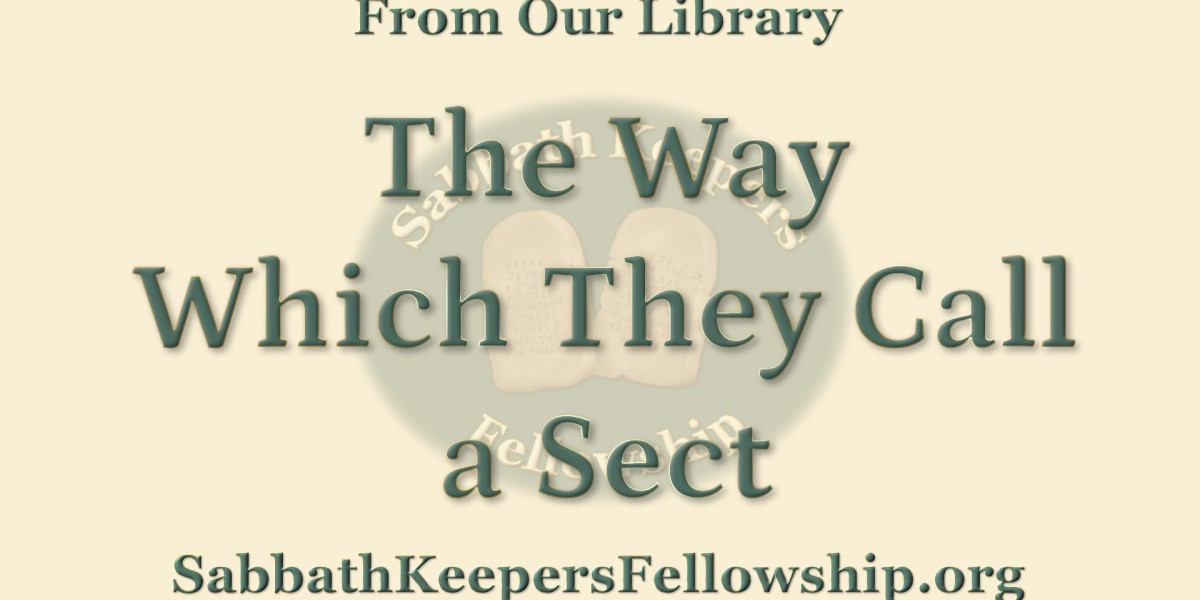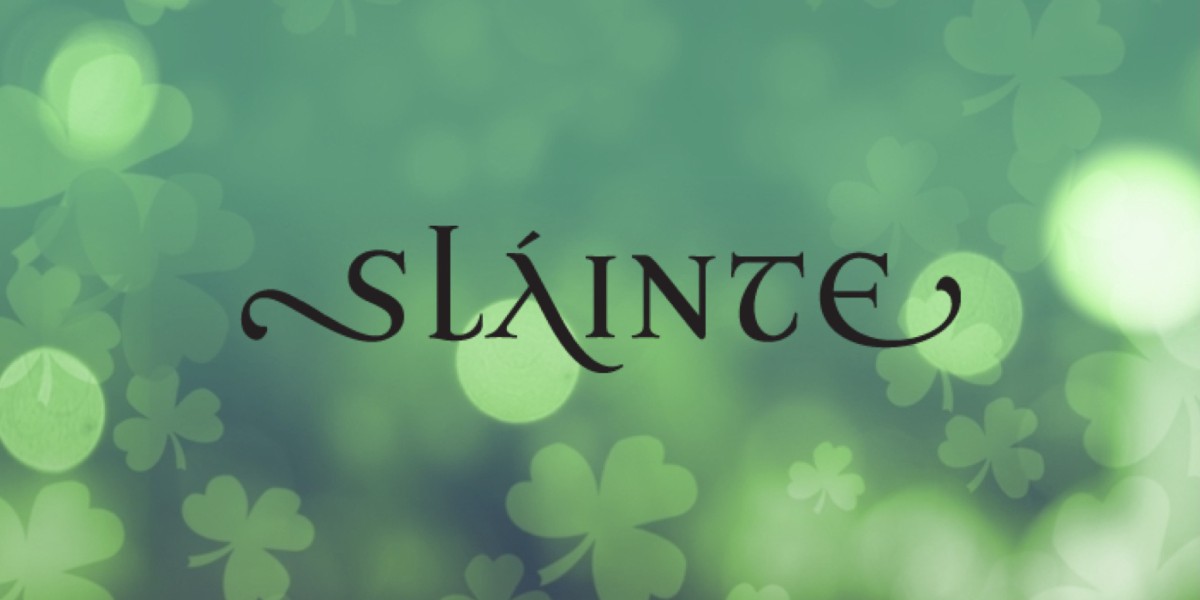In the book of Ma’asei, Sha’ul of Tarsos stood before a Roman governor, accused of heresy by the Prushym and the Tzadoqym, the orthodox religious leaders of his day. Under oath, he had this to say:
“And this I confess to you, that according to The Way, which they call ‘a sect’ so I worship the Elohym of my fathers, believing all that has been written in the Torah and in the prophets, having an expectation in Elohym, which they themselves also wait for, that there is to be a resurrection of the dead, both of the righteous and of the unrighteous.”
Sha’ul was not being accused of inventing a new religion called “Christianity,” but of supporting a deviant new sect of Yehudaism that was quickly growing and threatening its long-established traditions and leadership. Being under oath, the first thing Sha’ul did was dispute the claim that The Way was in anywise new or only a sect, avowing that it was in truth the ancient and original faith of Avraham, Yitzchaq, and Ya’akov, which was written of in the Torah and the Prophets. What is the truth of the claim he made? What support is there for it in Scripture? And what, if anything at all, does it mean for us today?
In the Torah, YHWH says of Avraham:
“For I have known him, so that he commands his children and his household after him, to guard The Way of YHWH, to do righteousness and right-ruling, so that YHWH brings to Avraham what He has spoken to him.”
And He also says to Moshe:
“See, I am sending a malak before you to guard you in The Way, and to bring you to the place which I have prepared.”
In the Prophets, YHWH spoke through Yeshayahu, saying:
“And your ears hear a word behind you, saying: ‘This is The Way,’ walk in it, whenever you turn to the right, or whenever you turn to the left.”
And He also spoke through Yirmeyahu, saying:
“Stand in The Way and see, and ask for the ancient paths, where the excellent Way is, and walk in it and find rest for your souls.”
These are only a few of the witnesses in the Torah and the Prophets to which Sha’ul referred concerning The Way in his testimony. There are many others. Yet even the patriarchs themselves were not there at the beginning of The Way. Indeed, it is more ancient than the universe itself. The Word of YHWH, personified as “Wisdom,” says of it in the Writings:
“YHWH possessed me, the beginning of His Way, as the first of His works of old. I was set up ages ago, at the first, before the earth ever was.”
Some will reason that men in earlier times, such as Avraham, Yitzchaq, and Ya’akov, could not have completely known The Way of YHWH, because in their time the entire Torah had not yet been given. Others will argue that it had been given, albeit orally, since YHWH has said,
“because Avraham obeyed My voice and guarded My charge: My commands, My laws, and My toroth.”
However, it is clear from the pages of Scripture that the revelations of YHWH have been given progressively, age after age, from their simple beginnings until their final completion. It would have been nonsensical, if not impossible, for Adam and Chavah to have assimilated and practiced the entirety of what is revealed and commanded in the Tanak. Likewise, it would have been entirely inadequate for the children of Yisrael in Ezra’s time to live only by the commands to be fruitful and multiply, and to not eat from the tree of knowledge of tov and ra. The Word of YHWH and His revelation to mankind has unfolded progressively, like the petals of a beautiful flower, from “Let there be light…” to its ultimate fulfillment in the person and teachings of Messiah Yehoshua. The Way of YHWH has been, for those throughout the ages who belong to Him, that they should walk in that Word to the fullest extent it is given to them in their own time.
Men have a tendency to not be satisfied with even the best and loveliest of what YHWH gives them. In Adam’s time, the forbidden fruit was irresistible to him and his wife. In Moshe’s day, the people could not wait to make a golden calf before which to bow down. In the times of the judges and kings of Yisrael, it was Asherim and altars to Ba’al. In every age, mankind fails to control his evil impulse, which drives him to add and subtract from the pure and simple, revealed Word of YHWH. In his desire to be as Elohym, he does what seems right in his own eyes, and that inevitably causes him to turn aside from The Way that YHWH has given to him, and to sin.
By the time Messiah Yehoshua was born, the children of Yisrael had, for the most part, ceased to worship physical idols. Instead, they had found another way to worship the works of their own hands – by directly adding to and subtracting from the written Word of YHWH itself. The traditions and teaching that had begun during the exile to Bavel in the Great Assembly with the best of intentions,
and that were preserved by those great men in anticipation of the eventual return of the nation to eretz Yisrael, had become so excessively compounded and were by then considered so authoritative that they began to be accepted as equal with, or even to supersede Scripture itself. In many cases, human reasoning carried to its own imperfect conclusions had eventually caused some of these teachings and traditions to actually contradict the literal written Word of YHWH, which in turn resulted in many people stumbling from The Way.
There is nothing wrong with traditions, in and of themselves. In fact, every culture and religion has them – without exception. They are even sometimes necessary things, and many are very beneficial and beautiful. For instance, with many of the commandments in Torah, there are no explicit instructions given on how they should be performed. A couple of examples that come to mind are the keeping of Shabbath and the tying of Tzitzith. The Torah only commands they be observed, but does not say exactly how to do so. Thus, a tradition must be developed as a method by which those commandments can be kept. A problem occurs when, for whatever reason, men carelessly create or compound their traditions, adding rule upon rule until they reach a point where they run afoul of the very commandments those traditions were originally intended to enable and protect. Messiah Yehoshua spoke of this very thing in the book of Marqos: Then the Prushym and the Soferym asked him,
“Why do your talmidym not walk according to the traditions of the elders, but eat bread with unwashed hands?”
And he answering, said to them,
“Well did Yeshayahu prophecy concerning you hypocrites, as it has been written, ‘This people respect Me with their lips, but their heart is far from Me. And in vain do they worship Me, teaching the fear of Me by the commandments of men,’ forsaking the command of Elohym, you hold fast the traditions of men.”
Notice that he did not condemn the use of traditions, per se, but only the elevating of them to a level where they supersede or contradict the clear commands of YHWH. In fact, it is written of Yehoshua that he kept many traditions himself. He even supported those of the Prushym when they did not conflict with Torah, as in the book of Lukas, when he said:
“But woe to you Prushym, because you tithe the mint and rue and every plant, and pass by the right-ruling and the love of Elohym. These you should have done, without leaving the others undone.”
And so, by the time Sha’ul of Tarsos stood before Felix the governor and his accusers, The Way of YHWH had become so obscured by the many teachings and traditions embraced by the proponents of religious orthodoxy that it was no longer even recognized by them, and was thought to be just a new one of the many sects of Yehudaism extant at that time. Yehoshua said:
“I am the Way, and the Truth, and the Life; no one comes to the Father except through me. If you had known me, you would have known my Father too. From now on you know Him, and have seen Him.”
He lived and taught a return to the simple and ancient method of walking out the commands and teachings of Torah, which is and has always been called The Way. His talmidym knew this, knew him, and walked in The Way after him. So even did Sha’ul, who said of himself that he was
“A Hebrew of Hebrews; according to the Torah, a Prush, according to zeal, persecuting the assembly; according to righteousness that is in the law, being blameless.”
Yet sadly, because they knew neither Yehoshua nor YHWH, its Author, the leaders of the nation of Yisrael and of Yehudaism who accused Sha’ul did not know The Way, thinking it only another “sect.” They were absolutely wrong.
Still to this day, many people follow in the same footsteps of those Prushym and Tzadoqym who centuries ago accused Sha’ul, and who persecuted those of The Way, sometimes even unto death. Christian orthodoxy says that Jesus supplanted Yehudaism with a new religion. Jewish orthodoxy says that Yeshua and his followers are deviant heretics. But, the words of Sha’ul of Tarsos, along with the testimony of the Torah and the Prophets, still ring down through the ages as three unreprovable witnesses, crying out to anyone who listens that both of these modern-day equivalents of his old accusers are still wrong. They attest that The Way is still the proper name of that pure and simple, one and only faith of the forefathers – that same faith that was once delivered to the Q’doshym, and which was brought to its fullness in the teachings and person of Yehoshua Hamashiach. The Way is the pathway to life and salvation which has remained unchanged since the beginning, and it will be until Yehoshua returns for those who belong to him – those who know him and his Father, and who are walking in The Way at his coming. May YHWH speed that day.
B’shalom,
Ovadyah






